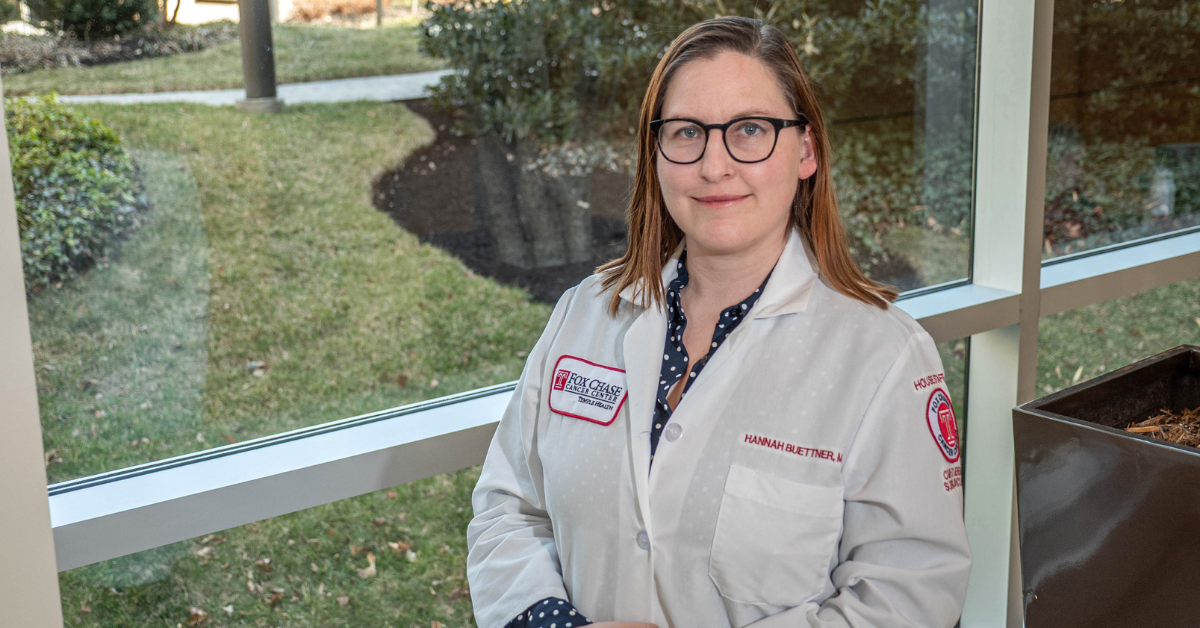
PHILADELPHIA (March 31, 2025) — Results from a study presented by Fox Chase Cancer Center researchers at the Society of Surgical Oncology 2025 Annual Meeting suggest that chemotherapy followed by local excision is a promising treatment option for patients with node-negative low rectal cancer.
Currently, standard of care for most patients who have tumors in the lower part of their rectum is total mesorectal excision, which involves removing the affected rectum, surrounding fat, and lymph nodes. This surgery is intensive and often requires patients to have an ostomy bag, which is worn outside the patient’s body to collect their stool, afterward. Only patients with early-stage T1 rectal cancer are eligible for local excision, which is a less extensive surgery with more minimal side effects.
“As you can imagine, all patients would like to avoid, if possible, having a permanent colostomy. So when they’re facing that surgical possibility, they really want to see if there’s anything else that we can do,” said Hannah Buettner, MD, a Complex General Surgical Oncology Fellow at Fox Chase, who presented the results of the research.
“Our results found that by pairing it with chemotherapy, local excision can be an appropriate level of surgery in more cases. There are a lot of benefits. It’s a lower-risk procedure than total mesorectal excision, it has fewer side effects, and the recovery is shorter. The patient might be able to go home the same day as the procedure, as opposed to spending several days in the hospital with longer recovery.”
Vanessa Wookey, MD, Assistant Professor in the Department of Hematology/Oncology at Fox Chase, was the lead author on the study, and Namrata Vijayvergia, MD, Assistant Chief of Gastrointestinal Medical Oncology, was the senior author.
The researchers recruited 19 patients on the trial with clinical stage T1-T3 low rectal adenocarcinoma whose imaging showed no evidence of cancer in their lymph nodes. Each patient received six cycles of chemotherapy, and 16 patients whose tumors shrank or disappeared then underwent local excision. Fifteen of those patients met the study’s primary endpoint, which was negative margins — no evidence of cancer was found in the tissue near their tumor site.
The next step in this research, Buettner said, is to scale up the study and create a second arm for comparison.
“Our study asked: Can we get patients to negative margins using neoadjuvant chemotherapy? The answer, so far, is yes. Studying more patients and also having a comparison between patients who get total mesorectal excision versus local excision will be the next step in getting more robust data to help clinicians and patients make informed treatment decisions,” she said.
The study, “Phase II Study of Organ Preservation (OP) in Node-Negative (NN) Low Rectal Cancer (RC): Updated Clinical and Patient Reported Outcomes (PROs),” was presented at the Society of Surgical Oncology 2025 Annual Meeting, which is being held in Tampa, Florida, March 27-29.